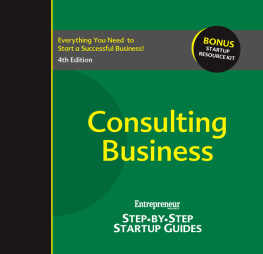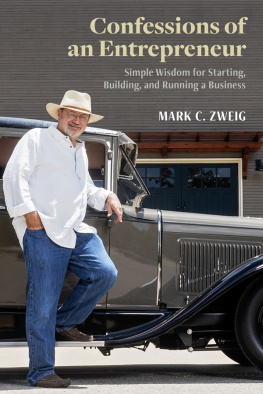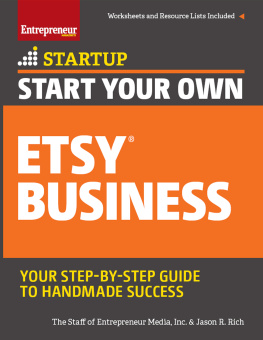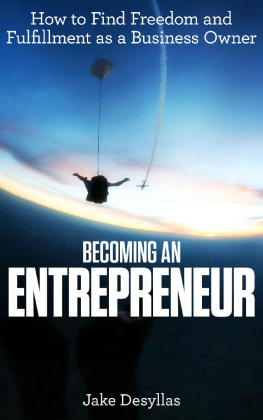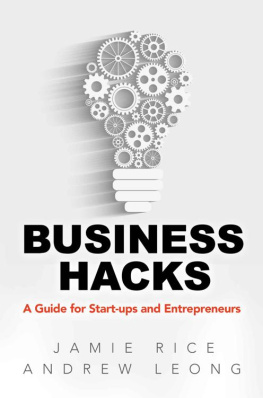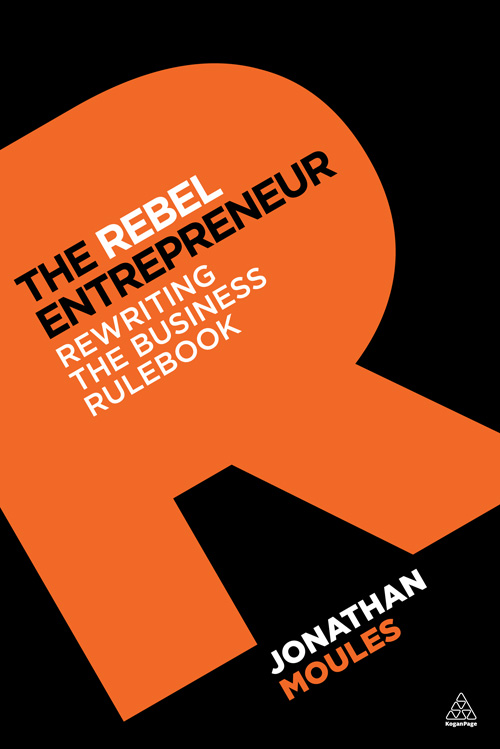Note on the Ebook Edition
For an optimal reading experience, please view large
tables and figures in landscape mode. |
This ebook published in 2012 by
Kogan Page Limited
120 Pentonville Road
London N1 9JN
UK
www.koganpage.com
Jonathan Moules, 2012
E-ISBN 9780749464837
Contents
Cutting your costs is not the same as raising your
prices
Success in business is a minority sport.
In most developed countries, the overwhelming majority of all privately held enterprises are small about 95 per cent, according to the OECD. The vast majority of these are sole traders. There is also an incredibly high failure rate among new ventures. About 8 out of every 10 of the companies started each year do not make it to their fifth birthday. Only a small percentage of those businesses that manage to struggle on beyond infancy then go on to create the real growth drivers of an economy.
However, it is these companies that are so important to the success of economies, providing new products and services that raise standards of living and, perhaps most importantly, the vast majority of new jobs. Just 7 per cent of businesses are responsible for more than half of all the new employment created in the UK economy, according to the British think tank Nesta. This figure is about the same across developed nations, according to the OECD, the economic body that measures such things. Nesta went further in its analysis, noting that these job-creating growth businesses are also very young as organizations.
This is a very exclusive club of companies indeed. What is it that makes these companies different? One way to define them and their leadership is as rule breakers. I am not saying that these companies have to be involved in illegal behaviour. No. It is that they are often created and run by people who see that you get ahead by going against the received wisdom on how to grow a business.
Call them rebel entrepreneurs, if you like. That is what this book is about.
What I hope to show you is the way that such entrepreneurs have defied the conventional views about how someone should behave in order to make their business more successful, even world beating. To do this, I have picked eight areas where a company can make a difference. They relate to finance, pricing, leadership, business models, cost management, sales strategies, the need to change and fear of failure.
Throughout the chapters I will introduce you to companies that I think exemplify the characteristics of rebel entrepreneurs in the way they have challenged conventional wisdom. Among them are companies that have been around for centuries, like knitwear producer John Smedley, which can date its origins back to the time of the American War of Independence. Alongside companies like this I look at some of the ways the young stars of the internet age, like Twitter, have been able to succeed.
I have also sought to include some of the best academic research on the subject of start-ups to show how the truth about entrepreneurship and business ownership is not what people always think.
The topics I have chosen for this book reflect the breadth of issues an entrepreneur has to consider when building a company. Each is a journey through tips I have picked up during six years of writing about entrepreneurship for the Financial Times .
There are many more subjects I could have covered because entrepreneurship is a many-faceted discipline. This is a good thing for me because it means that, if this book proves interesting to a lot of people, I have plenty of scope for a second volume.
Indeed, the idea of selling more of what you already have to the people who already like it rather than wasting time, energy and money on capturing new markets is one of the lessons of this book, so I can also show that I can practise what I preach.
Hopefully you will find a lot more useful advice in this book either to help you build a better company or perhaps inspire you to have a go at chasing that idea you have nurtured for an enterprise.
As I have discovered with this book, the journey to success can be a long one, but then those are usually the ones worth taking.
I hope you enjoy this book.
I must start by saying that this is probably the most difficult chapter of this book to write. Money and people are the sources of some of the biggest challenges, and most passionate disagreements, that founders and business owners face. This is because these two key elements of any enterprise strike at the heart of what a business is all about: generating profit from the actions of human beings. As a result, they are also subject to some of the most firmly ingrained assumptions about business, which are not always right for a business to succeed.
The point of this book is to take some alternative opinions on some of the main areas of concern in a business. The idea is to show that acting in a way that does not follow the crowd can be a better way of managing your business if you really want to grow bigger and faster what I call being a rebel entrepreneur.
We will return to people issues in the later chapters. But first, lets tackle money. There are several clichs about money. Some are true, however, such as cash is king. A company can survive without profits and even, for a period, without any sales, but if there is no cash in the coffers to pay the bills the venture is insolvent and therefore cannot trade legally.
Money, or rather the lack of it, has been front page news around the world for several years, first with the credit squeeze, then, following the collapse of Lehman Brothers in September 2008, the danger of a full-blown banking collapse. The narrative for most business owners is that the banks have turned off the taps of finance and are therefore destroying enterprise. This, unlike the cash is king clich, is only half true. The inconvenient truth is that some businesses should never have been given the money in the first place.
One of the little discussed tragedies of the financial mismanagement of the noughties was the way the actions of the banking sector gave the impression to a generation of business owners that lenders were in the market for taking risks. Many businesses before the crisis were getting finance at below sustainable rates and for the wrong reasons, chiefly because of the price of their owners home rather than the viability of their business idea. When reality dawned on the financial markets, these companies had their credit lines cut off along with the rest of the market. The difference was that many of these businesses, without viable business models, deserved it.
What the flood of money made available during the good times also did was encourage people to load up with funding before embarking on their entrepreneurial journey. This was also a tragedy because starting with little funding is what many rebel entrepreneurs will tell you is the best way to start a business. In fact, taking outside money from a bank or venture capital firm may be the worst thing you can do to a fledgling enterprise.
Neville Wright founded Kiddicare in 1974 with his wife Marilyn as a small baby equipment shop in a street in Peterborough, in the east of England. For years the business trundled along, occasionally moving location, but doing nothing that needed outside financial help. The Wrightss daughter Elaine then married Scott Weaver and they became the Weaver-Wrights. Scott was a dab hand with technology and a new way of trading goods, called the world wide web, had come along, so Scott decided to put Kiddicare online.


